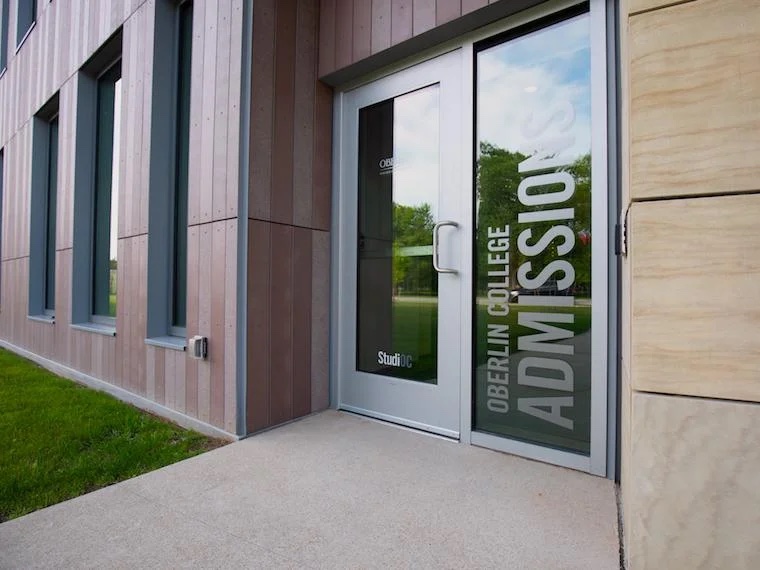Legacy Admissions Hinder Diversity, Equity
Eliminating legacy admissions would overall be beneficial to the College.
It was surprising to learn that Oberlin College gives preference to legacy students in its application and admissions process. Though Oberlin has stated its commitment to equity through various statements and programs offered to students, legacy programs underemphasize hard work and merit while reducing diversity in the student body.
Legacy preference in admissions gives an unfair advantage to students with family members who have attended the institution that a student is applying to. There is significant evidence that this aspect of the college admissions process unfairly favors students of wealthy and privileged backgrounds, regardless of their academic qualifications and merit.
Oberlin College should not consider the legacy status of prospective students and give an unfair advantage to the children and grandchildren of those who attended Oberlin in years past. It should solely focus on the merits and qualifications of prospective students, among other important factors such as diversity of the student body.
At many schools with legacy preferences in admissions, a significant portion of students come from the top income brackets. This can also be said about Oberlin’s student body.
“The median family income of a student from Oberlin is $178,000, and 70 percent come from the top 20 percent,” according to The New York Times. “About 1.2 percent of students at Oberlin came from a poor family but became a rich adult.”
While this study was conducted for the class of 2013, legacy preferences have been a part of the admissions process at Oberlin before and since. Several lawsuits have alleged that legacy preferences are inequitable and hinder diversity.
“A 2018 lawsuit against Harvard revealed that 77 percent of legacy admits were white, while just [five] percent were Black and [seven] percent were Hispanic,” a 2021 article by The Atlantic states. “At Notre Dame, the class of 2024 had five times as many legacies as Black students.”
This preference can lead to the admission of students who may not be as qualified as others simply because they have a relative who attended the school, which creates an unfair advantage for applicants coming from a white and privileged background. This preference is unfair to the many hardworking students who have great academic potential but may have not been admitted to a school such as Oberlin due to the preference towards legacy applicants.
Legacy preferences in college admissions have, however, been on the decline. Many institutions have started to eliminate the practice. Nevertheless, it is still prevalent in many colleges and universities throughout the country. Legacy admissions may be widespread, but that does not make it necessarily a good practice.
Schools that have legacy preferences tend to have wealthier student bodies; a larger population of the top income brackets is more likely to be on campus. It is usually those who are wealthier who benefit from legacy preferences due to family attending prestigious and private colleges and universities before them.
Legacy preferences give an unfair advantage to those who are wealthy and their descendants. It hinders diversity on campus within the student body, and reduces the importance of merit and qualifications. Having a more diverse and qualified student body would greatly enhance the education of those on campus, including outside of the classroom.
Oberlin should emphasize the importance of hard work and merit. It should assess the experience, potential, and qualifications of individual students it is considering admitting, not whether their parents attended. Ending legacy preferences would further this important goal that would benefit the institution in many ways.
There are important considerations on the other side of this argument, such as legacy preferences making it easier to raise money for the college. Alumni may donate more to a school that gives an advantage to legacy students who apply. However, it is also worth considering, to some extent, the extra funds that may come as a result of scrapping legacy preference. The benefits, such as increased talent pool, would increase contributions from a more diverse and qualified population of alumni while benefiting the current student body and institution. This significantly outweighs the benefits that legacy preferences offer.
This is also not to say that merit does not play a role in admissions here at Oberlin — Oberlin is a selective school with high academic standards for admission. It would be impudent to deny that most students on campus are qualified and gained admission based on their merits. The elimination of legacy preferences would, however, serve to enhance and increase the admission of students based purely on talent and merit.
While Oberlin is not the only institution that considers legacy status in its admissions, it should still eliminate it — as should any school that considers it. The elimination of legacy preferences in admissions at Oberlin would serve the institution well.


